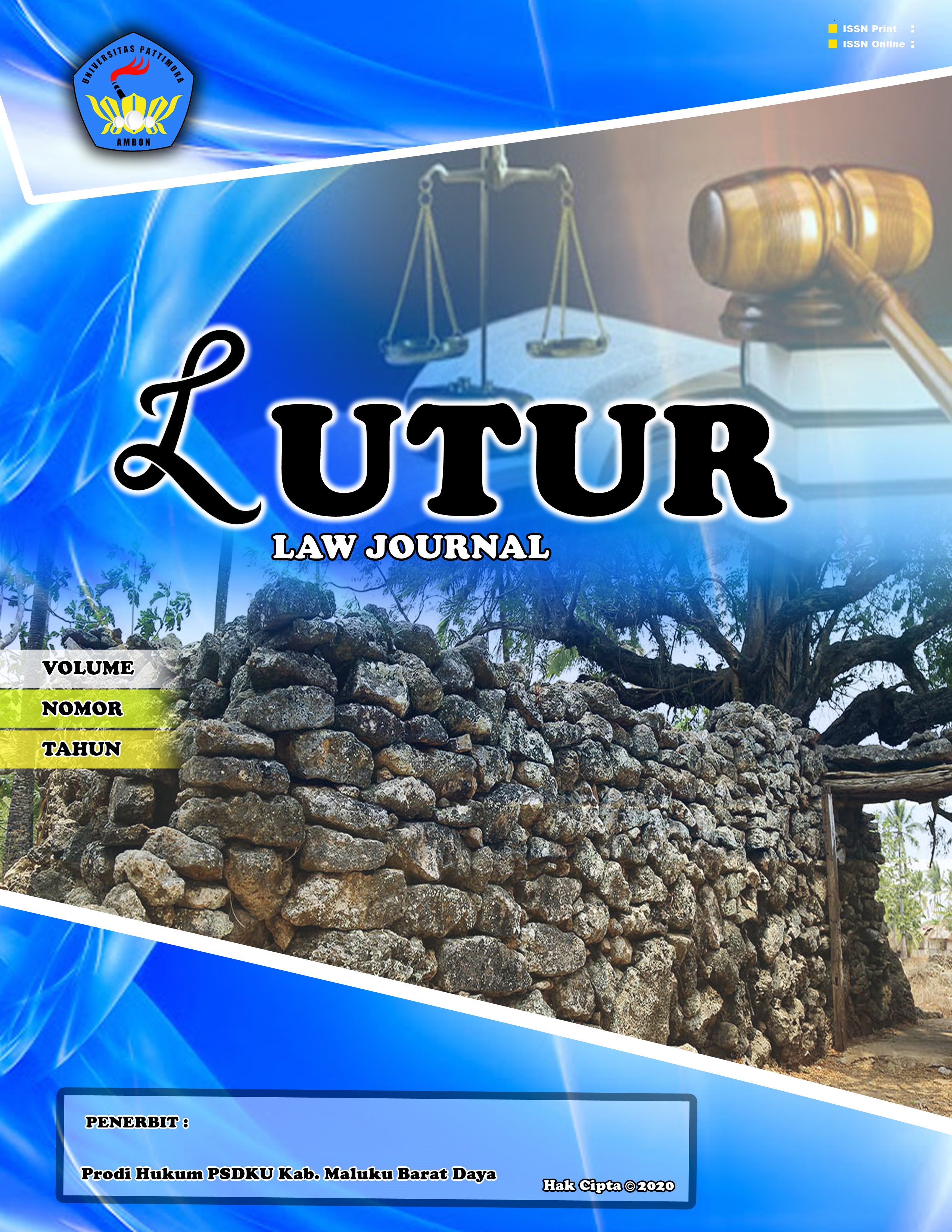Settlement of Domestic Violence Crimes Through Restorative Justice
Abstract
Domestic violence (DV) is a serious problem that impacts victims not only physically but also psychologically and socially. In Indonesia, domestic violence is a pressing social issue that requires effective resolution. According to data from the National Commission on Violence Against Women, the rate of domestic violence in Indonesia continues to rise, encompassing physical, psychological, sexual, and economic violence. The persistence of this problem indicates that the system for handling domestic violence cases still faces numerous challenges. This research is empirical and juridical. The research method is descriptive-analytical. The legal sources used are primary legal materials, secondary legal materials, and secondary legal materials. Data collection techniques used were interviews and questionnaires. The results indicate that resolving domestic violence cases through restorative justice involves several key factors: Investigators consider the severity of the violence, the perpetrator's willingness to take responsibility, and the goodwill of both parties to resolve the issue peacefully. Investigators at the Aru Islands Police Department focus on restoring relationships between perpetrators and victims, with the goal of reducing long-term social and psychological impacts and avoiding a backlog of cases in court. Restorative Justice has demonstrated significant effectiveness in resolving Domestic Violence (DV) cases when implemented appropriately. This approach provides space for perpetrators to take responsibility for their actions, for victims to receive psychological recovery, and to repair damaged relationships. However, its effectiveness depends heavily on several factors, such as the perpetrator's readiness to accept responsibility, the victim's willingness to participate, and support from law enforcement officials in terms of counseling and guidance.
Downloads
References
Haryanto, W, Hukum Pidana dan Alternatif Penyelesaian Sengketa: Konsep Restorative Justice. Jakarta: Penerbit Sinar Grafika, 2017.
Herdian, F., Triyoso, P., & Sulistio, F. Dasar Pertimbangan Kewenangan Diskresi Oleh Penyidik Kepolisian Dalam Penyelesaian Tindak Pidana Kekerasan Dalam Rumah Tangga (Studi di Polresta Malang). Jurnal Hukum dan Pembangunan 44, no. 2(2016): 123-135. https://doi.org/10.1234/jhp.2016.016.
Kurniawati, T, Restorative Justice dalam Sistem Hukum Indonesia. Jakarta: Penerbit Erlangga, 2019.
Muhammad, S., Liyus, H., & Wahyudi, D. Pendekatan Restorative Justice Dalam Penyelesaian Tindak Pidana Kekerasan Dalam Rumah Tangga. Jurnal Ilmu Hukum 18, no. 3 (2023): 56-72. https://doi.org/10.5678/jih.2023.018.
Nugroho, D, Penyelesaian Tindak Pidana Kekerasan Dalam Rumah Tangga: Perspektif Hukum dan Sosial. Yogyakarta: Universitas Gadjah Mada Press, 2020.
Soerjono Soekanto, Pengantar Penelitian Hukum, Jakarta: UI Press, 1984.
Syarifuddin, M, Hukum Restoratif: Konsep dan Penerapannya dalam Sistem Peradilan Pidana di Indonesia. Jakarta: Rajawali Pers, 2018.
Widodo, H. Perlindungan Perempuan dalam Sistem Peradilan Pidana. Jakarta: Penerbit Erlangga, 2017.
Widodo, H, Peran Kepolisian dalam Penyelesaian Kasus Kekerasan dalam Rumah Tangga. Jakarta: Gramedia, 2021.
Copyright (c) 2025 Johan Pieter Elia Rumangun (Author)

This work is licensed under a Creative Commons Attribution-NonCommercial 4.0 International License.
Authors who publish their manuscripts in this Journal agree to the following conditions:
- The copyright in each article belongs to the author, as well as the right to patent.
- Authors are able to enter into separate, additional contractual arrangements for the non-exclusive distribution of the journal's published version of the work (e.g., post it to an institutional repository or publish it in a book), with an acknowledgment of its initial publication in this journal.
- Authors are permitted and encouraged to post their work online (e.g., in institutional repositories or on their website) prior to and during the submission process, as it can lead to productive exchanges, as well as earlier and greater citation of published work.
- Authors have the right to self-archiving of the article (Author Self-Archiving Policy)














